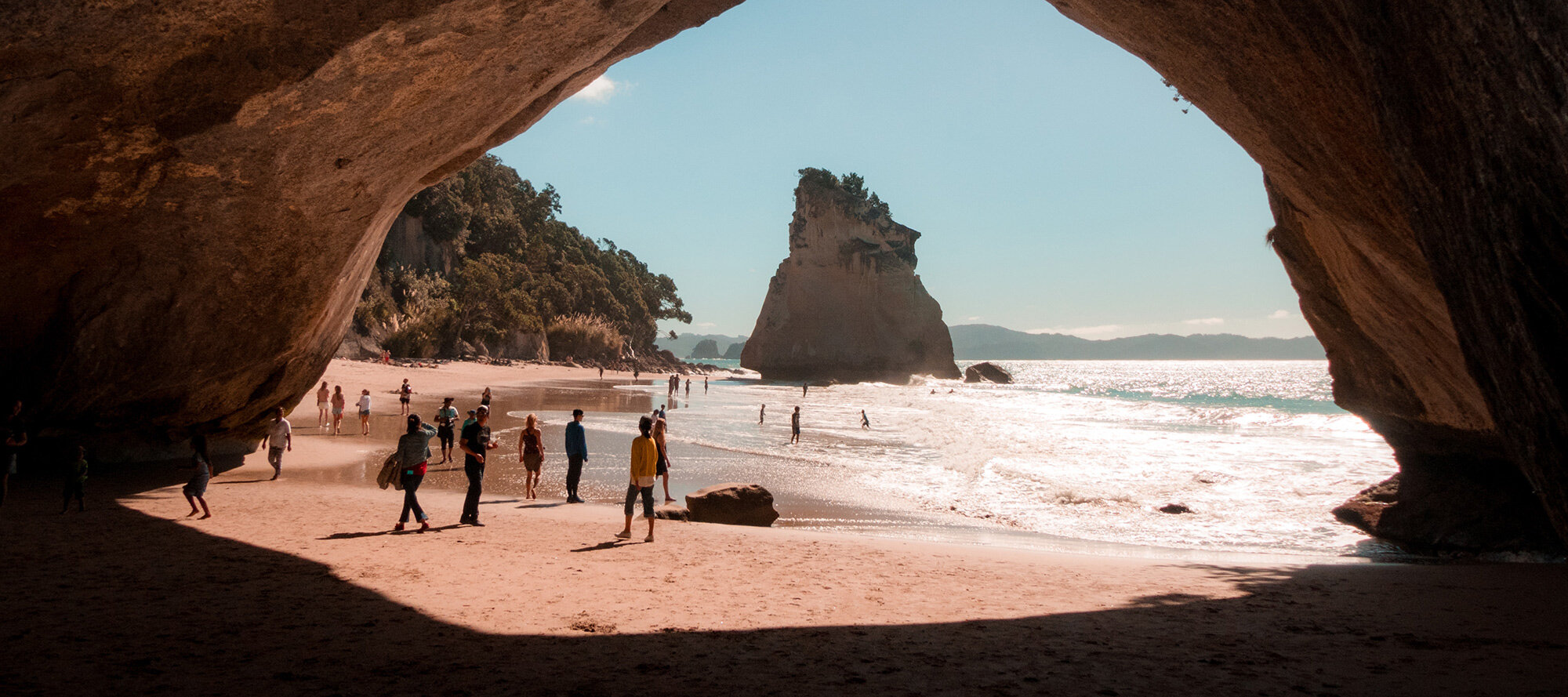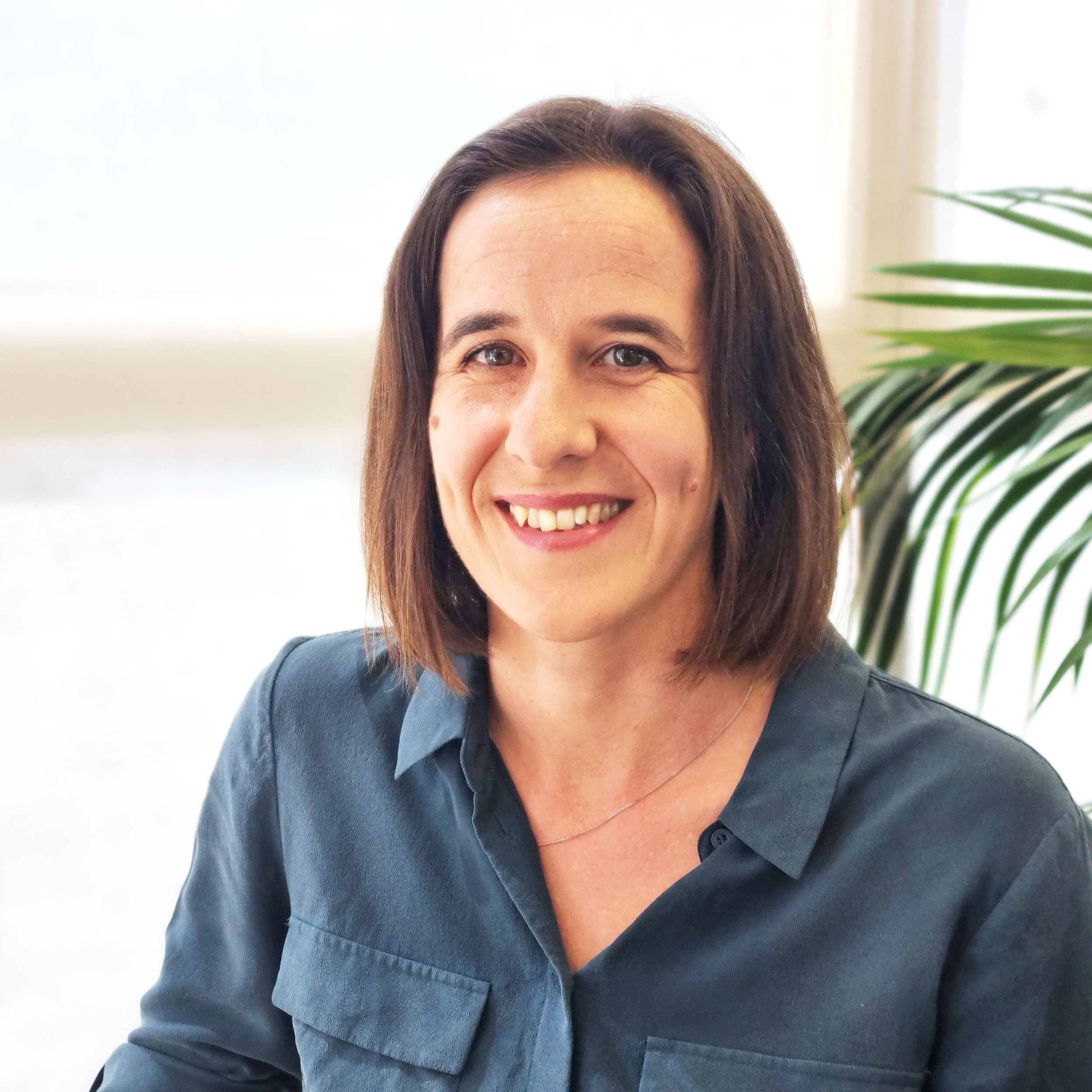
Research Team
Our team gathers a diverse and complementary set of qualitative and quantitative modelling skills. We are also supported by leaders who have successfully managed scores of projects and developed extensive networks across research, commercial and public sectors.
Garry McDonald
PhD (Ecological Economics)
Director
Garry McDonald is one of the founding directors of M.E. He has a PhD in ecological economics and previously held a position within Manaaki Whenua Landcare Research. Garry’s research interests focus on the integration of environmental, social and economic dimensions of sustainability and resilience, and the use of systems and data-science tools and techniques to assist public and private decision making within these contexts.
Over the past two decades Garry has successfully founded the M.E Research team, a group that uniquely combines research and consulting in the development of decision-support tools, starting from initial conception in innovative science, through to real-world application in policy evaluation and project feasibility studies. Through his wide experience Garry has developed an extensive network of research colleagues and commercial and public sector clients.
Garry presently co-leads the ‘Multi-Hazard Risk Model’ programme within the Resilience to Nature’s Challenges National Science Challenge and co-leads the MBIE Endeavour research programme ‘Transitioning Taranaki to Volcanic Futures’. He has been an invited professor at Universite de Versailles (France) and has held or currently holds adjunct professorship roles at University of Auckland, University of Canterbury and Massey University.
021 735 999
Nicola McDonald
PhD (Ecological Economics)
Director
Nicky is one of two directors within the M.E Research team. She has some 15 years’ experience, mainly in research and consulting at M.E but also in planning at the local government level. Nicky is broadly interested in assisting communities to improve their wellbeing, including through enhancement of ecological sustainability and resilience to natural hazards. These interests are reflected in her chosen academic background in geography, law and, more recently, a PhD completed in ecological economics and supported through a Bright Futures scholarship.
During her time at M.E, Nicky has worked on a range of exciting and cutting-edge projects. These include the creation a of new modelling tool, MERIT, that simulates economic systems disrupted by infrastructure outages or natural hazards, development of a framework for valuing the benefits of different types of water demand management and assisting local government and stakeholders to assess alternative transition pathways towards improved freshwater quality. She has expertise in complex system enquiry and economic evaluation frameworks and methods. Nicky is currently a Research Aim leader within the ‘Transitioning Taranaki to Volcanic Futures’ Endeavour research programme.
021 863 354
Juan Monge
PhD (Agricultural Economics)
Associate Director
Juan joined M.E’s Research team after having worked at Texas A&M University and Scion for almost 12 years. Juan specialises in the application of numerical methods, namely optimisation protocols (e.g. equilibrium models) as well as stochastic simulation, especially in contexts involving land-use change, ecosystem services, climate change, renewable energy, and natural hazards.
Most of Juan’s work has been funded by private firms, government, and four National Science Challenges. Such work has culminated in several publications in some of the world’s leading scientific journals such as Applied Energy, Ecological Economics, the Journal of Cleaner Production, Ecosystem Services, and Science of the Total Environment. This work has been used and cited by various government entities, private firms, and private consortia.
Juan currently leads a project funded by the Biological Heritage National Science Challenge to model the economic impacts from myrtle rust and kauri dieback in New Zealand. Juan also serves as a section editor of the New Zealand Journal of Forestry Science and as associate advisor in master’s and doctoral degrees at the University of Canterbury and Lincoln University.
027 317 4971
Emily Harvey
PhD (Applied Mathematics)
Senior Researcher
Emily has over 10 years’ experience in quantitative modelling and analysis. In her academic research at the University of Auckland, Montana State University and Massey University Auckland, she developed mathematical models of physiological and ecological systems and used cutting-edge numerical and theoretical analysis to produce new insights and direct future work. At Market Economics, Emily is involved in a wide range of central and local government research and consulting projects including: spatial modelling of economic and environmental systems, simulating impacts of potential policy options, estimating the economic impacts of natural hazard events, and investigating economic resilience to disruptions.
Emily’s research interests can be broadly described as using mathematical modelling and data analytics to study complex economic, environmental, cultural, and social systems and the interactions between them. Through this work she aims to gain new insights and knowledge, and to develop tools to inform and support discourse that leads to better decision making. As part of this work, Emily is a Principal Investigator with Te Pūnaha Matatini Centre of Research Excellence at the University of Auckland. Emily is a core member of the Te Pūnaha Matatini-led modelling team supporting the government in COVID-19 response and planning and has responsibility for co-leading the development of the network-based contagion modelling.
(09) 915 5517
Les Dowling
M.For.Sc
Research Consultant
Les joined the M.E. team in April 2022, having worked as a scientist for 10 years at Scion. Between his roles at Scion and M.E., Les held forest management and consulting positions in the forest industry.
Les is interested in the application of quantitative methods to inform land-use management and adaptation. He specialises in the use of empirical and heuristic modeling with discounted cash flow analysis. Les has a strong background in applied land management and likes to work as a bridge between the theoretical and applied. Les sees the greatest potential for change at the intersection of different academic disciplines, world views, and schools of thought.
Robert Cardwell
PhD (Land Use and Infrastructure Economics)
Researcher
Robert has worked at Market Economics since 2011, while also undertaking a PhD at University of Auckland from 2017 to 2021. During this time the primary area of expertise Robert has developed is in the building and application of integrated models, particularly input-output and computable general equilibrium type economic models, land use change, and transportation models. Robert also has a wide background in engineering, having completed degrees in mechatronics and engineering management, and undertaking his PhD through the school of Civil and Environmental Engineering. Robert is also a co-founder, and current chair of the board of Engineers Without Borders New Zealand.
Nam Bui
PhD (Economics)
Researcher
Nam joined the ME Research team in 2022. He holds a PhD in Economics from the University of Auckland and an MSc in Environment Management and Economics from the University of Gothenburg, Sweden. His research interests include climate change impacts, responses to global pandemics, and natural hazards.
Nam’s skills encompass several econometric techniques, especially the difference-in-differences. A strong background in mathematics helps Nam feel comfortable with coding in R and Python. He also works well with GIS software to solve spatial problems relating to flood and volcano risks.
09 915 5533
Stefania Mattea
PhD (Environmental Economics)
Researcher
In 2021, Stefania joined the M.E research team. She holds a PhD in Environmental Economics from the University of Waikato. Her research expertise centers around the micro-econometrics of survey data with applications in public economics, particularly in the environmental field. Stefania’s doctoral research focused on the economic valuation of landslide protection services using nonmarket valuation techniques. Stefania has worked in research projects related to ecosystem services valuation, natural hazards mitigation and outdoor recreation.
She has published her research in international peer-reviewed journals such as Land Economics, Land Use Policy, and Ecosystem Services. She has also served as a peer reviewer for various publications. Besides her academic work, she has gained technical experience working in the construction industry as a sustainability specialist.
Stefania has a keen interest in making her work relevant to society, by better understanding the complex relationships between the economy, society, and the environment.
09 915 5518
Barbara Martelli
PhD (Italian)
Researcher
Barbara, a cultural anthropologist, joined the ME Research Team in October 2023. Her expertise centers on the socio-cultural dimensions of geothermal development, including citizen engagement, sustainable innovation, distributive justice, identity, tourism, and perceptions of hazards. Alongside her role as a research consultant, Barbara serves as a Teaching Fellow in Italian at the University of Auckland, where she earned her PhD.
Her academic background includes an MA in Cultural Anthropology and Ethnology from the University of Bologna and a BA in Communication Studies from the University of Milan. She is an active presenter at international conferences and has published on topics spanning cultural anthropology, migration, feminism, Italian literature, and language teaching. Barbara has also collaborated with Italian public institutions and non-profits on projects concerning social inclusion, cultural mediation, and asylum seekers
09 915 5518
Yvonne Matthews
PhD (Environmental Economics)
Researcher
Yvonne is an applied economist specialising in environmental issues, thoughtfully weaving together economic assessment methods and science insights to inform policy and decision-making. With a PhD in Environmental Economics complemented by qualifications in Computer Science and Public Policy, she integrates diverse fields of knowledge, blending data-driven insights with a grounded understanding of policy needs and implications. Her expertise extends to non-market valuation, economic assessment, and econometrics, enriched by extensive participation in multidisciplinary projects.
Her contributions have spanned regional and central government, CRIs, academia, and the energy sector. The scope of her work has included key sustainability challenges such as freshwater policy, land use change, air quality, regional development, invasive species management, natural hazard resilience, and household energy efficiency. With publications in respected journals and a history of effective client reports, Yvonne is committed to collaborative research and the sharing of insights to foster informed decision-making.
Duncan Grimson
MEcon, BCom (Economics)
Researcher
Duncan joined the M.E Research team as a Research Analyst in August 2019, having completed a Master of Economics at the University of Otago and a Bachelor of Commerce at the University of Auckland.
Duncan is knowledgeable in a wide range of econometric techniques and has experience in economic modelling. Duncan has developed a strong understanding of a wide range of economic theories and is particularly interested in Energy and Environmental Economics, and Public Economics.
09 915 5524
021 027 87038
Euan Forsyth
MA (Geographic Data Science)
Research Consultant
Hailing from the University of Auckland’s School of Environment and the Centre for eResearch, Euan joined M.E at the start of 2020. Initially part of our Consulting team, Euan moved to our Research team in 2021. While in the Consulting team Euan was primarily charged with implementing our capacity for growth models to help councils fulfil their planning obligations, in addition to providing GIS support across the team. Since moving to the Research team, he now provides specialist knowledge on spatial statistics as well as general GIS support. Euan’s interests lay broadly in urban morphology and mobility, as well as data visualisation.
09 915 5534
Annal Dhungana
PhD Student
Joint Centre for Disaster Reduction (JCDR), Massey University, 2021-current
Title: Effective Communication of Model Uncertainty
“Different mathematical and computational models have been designed by scientist/modeler with an aim to support decision-making during emergency response and recovery. However, in these modelling process, uncertainties are manifested starting from input data, during model run, and during generating output. Communication of these model uncertainties are believed helpful during decision-making. However, we lack knowledge on decision makers need on model uncertainties. So, through this research, decision-makers need will be identified, while also interacting with scientist around current practice. Through gaining rich, insightful, and nuanced understandings of decision-making needs, and current uncertainty communication practice by the scientist, the study will help develop a guiding mechanism to communicate model uncertainty.”
Supervisors: Dr. Emma Hudson-Doyle (JCDR, Massey University), Dr. Raj Prasanna (JCDR, Massey University), Dr. Garry McDonald (MEResearch), Prof. Douglas Paton (Charles Darwin University, Australia)
Martyna Wala
PhD Student
School of Environment, University of Auckland, 2021-current
Title: Socio-economic Adaptation to Ongoing Taranaki Volcanism
“My research focuses on enhancing socio-economic adaptation and resilience to potential long-term volcanic disruption caused by Mt. Taranaki. My holistic perspective highlights complex interactions between system components, while the application of System Dynamics methodology enables the simulation of plausible changes in the behaviour of aspects of the socio-economic system under distress. My research seeks to identify robust strategies and pathways for dynamic transition through long-term disruption under conditions of deep uncertainty. This transdisciplinary topic sits at the interface of hazard management, socio-economics, decision theory, and systems science.”
Supervisors: Dr. Garry McDonald (MEResearch), Prof. Anita Wreford (AERU, Lincoln University), Prof. Shane Cronin (School of Environment, University of Auckland).
Duncan Grimson
PhD Student
Massey University, 2021-current
Title: Assessing Dynamic Value Chains under Cascading Natural Hazards
“New Zealand is exposed to a wide range of natural hazards and with the growing influence of climate change, New Zealand’s exposure and vulnerability to natural hazards is likely to increase. Many of the impacts of these disruptions will be economic in nature and can be estimated. However, traditional approaches often overlook the unique disruptive elements of natural hazards such as the out of equilibrium dynamics and the propagation of impacts along the economy’s value chains. Using an approach that intertwines ecology and economics, my research will incorporate standard (input-output) and emerging (network analysis) economic practices with business transaction data to estimate the dynamic spatial and temporal impacts of disruptions to address the limitations of standard economic approaches. Improved estimation of natural hazard disruptions will provide improved clarity in local (business, industry, or regional level) and national decision-making processes to provide better recommendations of disaster risk reduction strategies. This approach will be applied to a case study focused on the Rangitaiki and Tarawera river systems in New Zealand’s Bay of Plenty region.”
Supervisors: Prof. Mark Bebbington (Massey University), Dr. Garry McDonald (MEResearch)
Robert Cardwell
Past PhD Student
University of Auckland
Title: The Application of Integrated Land Use and Economic Models to the Simulation of Natural Hazard Events
“To date, most applications of economic and land use change models to the assessment of natural hazards have focused on assessing vulnerability, capital, fatality, and short-run economic impacts. This research applies the integration of a land use change and an economic model to a hypothetical volcanic eruption to demonstrate the simulation of long term-long land use change and economic impacts and recovery pathways after a natural hazard event has occurred. The research also develops a concept called Built Environment Services that enables bringing more holistic measures of well-being and important characteristics of the built environment into integrated modelling.”
Supervisors: Prof. Liam Wotherspoon (School of Engineering, University of Auckland), Dr. Garry McDonald (MEResearch)
Ashton Eaves
Past PhD Student
School of Environment, University of Auckland
Title: Modelling the Economic Implications of Coastal Managed Retreat
“My thesis presents a new method to support robust approaches to implementing coastal managed retreat for coastal communities exposed to climate change through rising sea levels and increasing storminess. It uses Evolutionary Economic analysis, System Dynamics, Scenario Planning and Robust Decision Making to identify Dynamic Adaptative Policy Pathways for implementation. The approach models scenarios of baseline climate risk, coastal mitigation and adaptation to assess the economic implications of a large-scale managed retreat for a study area in Hawke’s Bay, well known for exposure to a range of coastal hazards. It develops a new integrated assessment model called C-ADAPT to assess possible pathways for vulnerable communities to adapt to coastal hazards until 2050. The economic impact modelling utilises the quasi-computational general equilibrium model ‘MERIT’ developed by Market Economics and GNS.”
Supervisors: Prof. Paul Kench (School of Environment, University of Auckland), Assoc. Prof. Mark Dickson (School of Environment, University of Auckland), Dr. Garry McDonald (MEResearch)
Vicky Forgie
Past PhD Student
Ecological Economics Research New Zealand, Massey University
Title: Tackling Complexity using Interlinked Thinking: Well-being as a Case Study
“The world today is made up of a series of highly interconnected complex systems characterised by uncertainty. Human minds struggle with complexity, and the tools available to help us are limited. This often leads to reductionism, focusing on the parts rather than the whole. Working with individual parts ignores the dynamics that result from interdependencies between components. It is these interactions that determine the behaviour we experience in real world situations. This PhD presents ‘interlinked thinking’ as a communication and analytical approach to help people work with, rather than ignore, complexity. It is a participatory process that allows people not familiar with systems thinking to have a structured dialogue on how components interrelate.”
Supervisors: Assoc. Prof. Marjan van den Belt (EERNZ, Massey University), Dr. Garry McDonald (MEResearch)


















